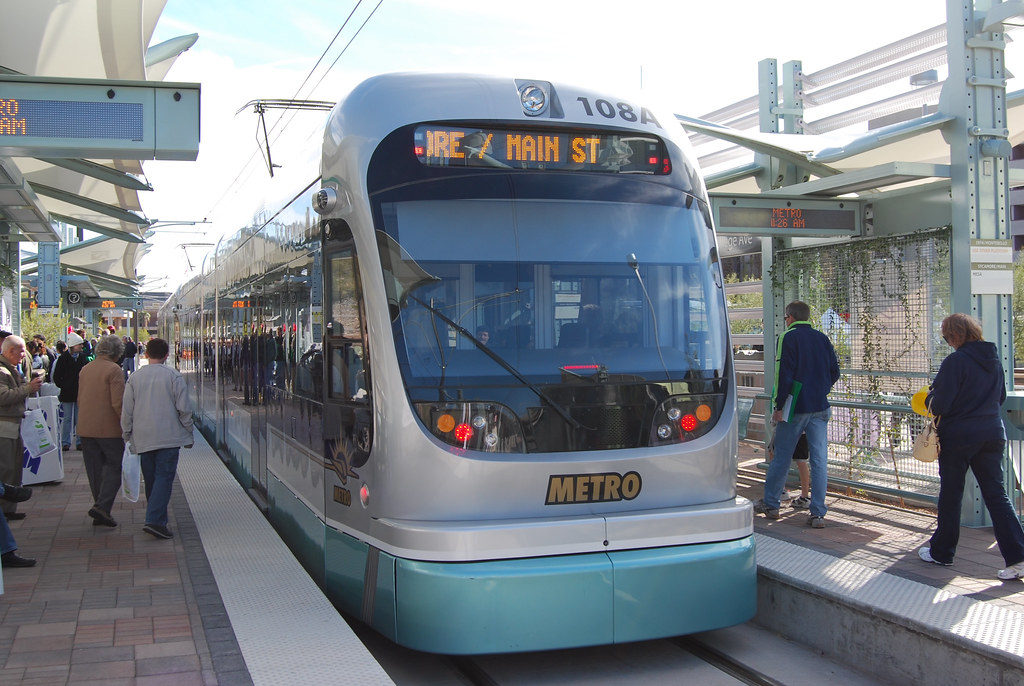Voters in Phoenix have soundly rejected a proposal that would have halted the expansion of the city's light rail system — a proposition that had the backing of dark money linked to the notorious anti-transit Koch brothers.
In a 62-to-38 percent vote, residents turned aside Proposition 105, which would have redirected a previously passed tax away from light rail towards other transportation improvements. It would also have required "terminating all construction, development, extension, and expansion of" light rail.
The vote was 107,370 against Prop 105 to 64,666 in favor. A second ballot proposition that would have capped spending on city services until its pension debts are reduced was defeated by a two-to-one margin.
The effort to end light rail in Phoenix was part of the legacy of the petroleum tycoon and conservative radical Charles Koch and his late brother David, who funded grassroots activist campaigns to kill transit projects in cities around the country.
They succeeded in Nashville last year and they almost did again in Phoenix where they backed a group of Arizona business owners and developers who petitioned to get a proposition on the ballot that would strike down the city's South Central light rail expansion.
PRELIMINARY RESULTS FROM CITY OF PHOENIX:
— FOX 10 Phoenix (@FOX10Phoenix) August 28, 2019
Proposition 105
Yes: 64,666 (37.59%)
No: 107,370 (62.41%)
"Yes" vote stops light rail expansion.
Turnout for the special election was a record high and surpassed a prior ballot initiative four years ago when about 21 percent of Phoenix voters went to the polls and approved a tax increase that would fund light rail projects.
Phoenix Mayor Kate Gallego, who was elected five months ago, argued the rail system would sacrifice $600 million in federal funding if the proposition passed. Gallego thanked a slew of union leaders, activists, business leaders, activists, and Council members Debra Stark and Laura Pastor for the ballot victory Tuesday night.
"Light rail expansion is not stopping— not today, not tomorrow, not ever," she tweeted. "We have and will continue to protect our rail because this is not about one route, this is about equity for our entire community."
Light rail expansion is not stopping— not today, not tomorrow, not ever. We have and will continue to protect our rail because this is not about one route, this is about equity for our entire community.
— Kate Gallego (@KateWGallego) August 28, 2019
Ridership on Phoenix's light rail system has risen steadily since it launched a decade ago. The number of annual trips rose from 12.7 million in 2009 to 16.5 million in 2017, although ridership dipped 4.4 percent to 15.8 million last year.
The $1-billion project would extend the rail line from downtown five miles down Central Avenue to Baseline Road in South Phoenix. Construction on the line is expected to begin in 2020 and service will start by 2023.






